Harvard University
Genetics
Within each cell, winding through chromosomes, waiting to be decoded from DNA, are the genes that make us who we are. Harvard researchers are working to understand how these tiny instructions exert such a large influence on our lives.
In this free online Harvard course you can learn how to analyze DNA and RNA using open source software.

Can we correct the genetic mutations that cause diseases?
Hundreds of millions of people worldwide suffer from genetic diseases, including cancer. To help them, Professor David Liu, with support from the NIH, DARPA, and other federal agencies, is correcting genetic mutations by modifying DNA.
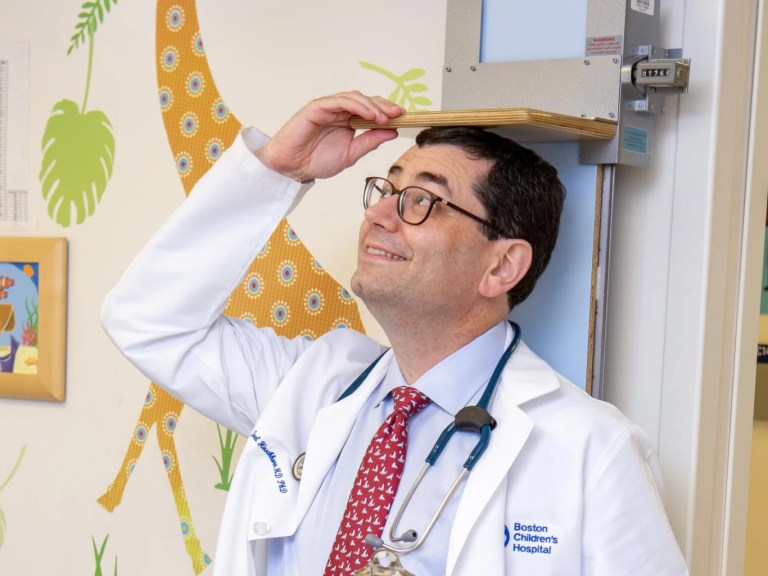
Why are you that tall?
Geneticist Joel Hirschhorn’s fascination with the heredity of height, which has a long history in early genetics research, has led to insights about the biology of growth and disease.
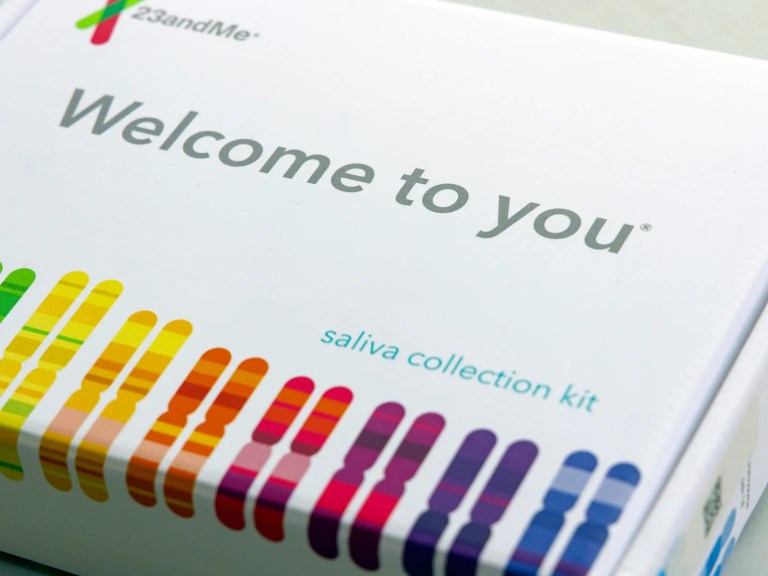
What happens when you share your genetic data?
Harvard Law School’s I. Glenn Cohen explains the legal landscape surrounding genetic data, the reasons for more consumer protection laws, and the steps for consumers to protect their personal and genetic data.
Passing down knowledge
Feyisayo Eweje
At Harvard’s Wyss Institute, Feyisayo is working on a method to transport gene editors to the right cells in the body, so they can directly correct mutations.
Christina Warinner
As a professor of scientific archaeology, Christina uses ancient DNA in her pioneering work cracking the mysteries of early human diets and health.
Susan Kuo
At Massachusetts General Hospital, Susan focuses on how genetic changes may shift over time for people with neuropsychiatric disabilities.
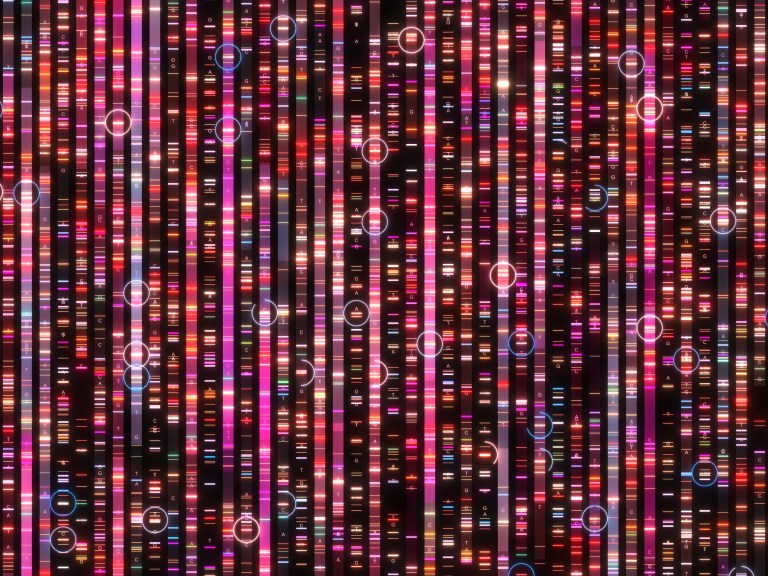
Did you know?
Human genome projects
George Church, professor of genetics at Harvard Medical School, developed the first direct genomic sequencing method, which resulted in the first genome sequence. Since then, he helped initiate the Human Genome Project in 1984 and the Personal Genome Project in 2005.
Getting to the origin of diseases

Knowing your genetic predisposition to diseases
“Polygenic risk score” tests comb through a person’s DNA to calculate genetic predisposition to things like heart disease, type 2 diabetes, Alzheimer’s disease, and common cancers. Should we all know our genetic disease risks? How do we make sense of what the scores tell us and don’t tell us?
Knowing your genetic predisposition to diseases- Cancer
Reviewing an overlooked segment of the genome's impact on cancer formation
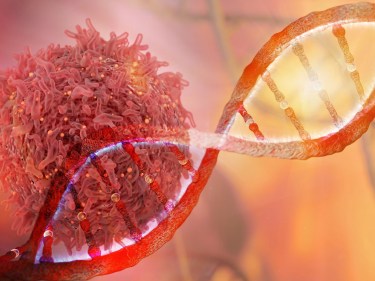
- Huntington’s disease
Understanding how a genetic mutation causes Huntington’s disease
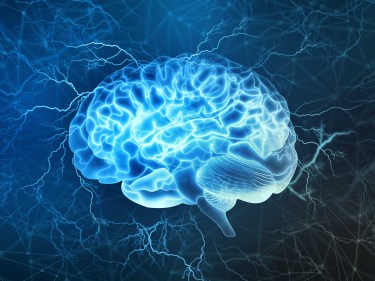
- Liver Cancer
Uncovering a key molecular switch linked to liver cancer

- PTSD
Pinpointing the genome location linked with developing post-traumatic stress disorder

- Dementia
Exploring how the Mediterranean diet can offset genetic risks for dementia


Did you know?
CRISPR
First discovered as a defense system protecting bacteria against viruses, this genome-editing tool has been studied by scientists for decades because of its enormous potential.
In 2025, a team at Harvard Medical School helped create the world’s first approved medicine based on CRISPR/Cas9 gene-editing technology, and other CRISPR-based treatments developed at Harvard are soon to follow.
History is in our DNA
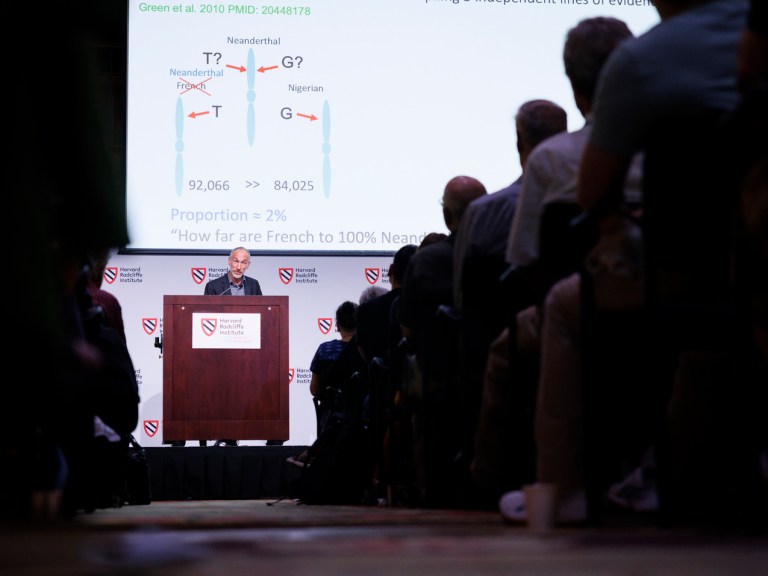
Debunking pure bloodlines and ancestral homelands
Harvard geneticist David Reich explains that everyone’s genetic background shows a mix from different waves of migration that washed over the globe. “The big perspective change from ancient DNA study is that people living today are almost never the descendants of the people in the same place thousands of years before.”
Decoding the origins of languages
Experts are using ancient DNA to explore the origins of the Uralic family of languages, which include Hungarian, Finnish, and Estonian, along with the Indo-European family of 400-plus languages, spoken today by more than 40% of the world’s population.
Analyzing the evolution of birds
Researchers are exploring the genetics behind how flightless birds developed and how a major DNA flip helped the house finch become resistant to certain diseases.
Uncovering ancient cultures
Investigators are using DNA and genetic variations to get a more complete view of life in ancient cultures of Pompeii, Chichén Itzá, Britain, the Caribbean, Pacific islands, and the Xiongnu people.
You may also like
